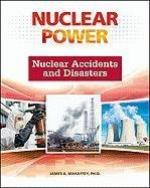|
This section contains 1,022 words (approx. 4 pages at 300 words per page) |

|
The atomic bombings of Hiroshima and a second Japanese city, Nagasaki, in August 1945 have provided unique insights into the long-term health effects of nuclear radiation. Hibakusha, literally "explosion affected persons," is the Japanese term for atomic survivors. Over the last six decades, researchers have closely followed the lives of more than fifty thousand hibakusha with significant exposure to the bombs' effects. Studies have revealed that these hibakushahave about a 30 percent higher than normal chance of dying from cancer, including leukemia and cancers of the lungs, colon, stomach, and other organs. Hibakusha also suffer from higher rates of other diseases, although these have been more difficult to attribute directly to the effects of radiation. Persons exposed to bomb radiation before birth suffer from high rates of mental retardation. One hopeful, and surprising, finding has been that the children of hibakusha do...
|
This section contains 1,022 words (approx. 4 pages at 300 words per page) |

|




